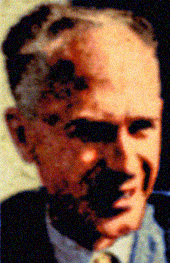
Roving Reporter
By Ernie Pyle
WITH U.S. FORCES IN ALGERIA – A trip by troop transport in convoy is a remarkable experience. I came to Africa that way. We weren’t permitted to tell about it at the time, for security reasons. But enough time has passed now that it can be written without danger.
So, this will be a series on our convoy trip from England to Africa. As you read it, you can apply it any other convoy, for they are essentially the same, and they are sailing all the oceans this very minute.
Convoys are of three types, you might say – the very slow ones of freighters carrying only supplies; the medium-fast troop convoys which run with extremely heavy naval escort; and the small convoys of swift ocean liners which carry vast numbers of troops and depend for safety mainly on their great speed.
Ours was the second type. We were fairly fast; we carried an enormous number of troops; and we had a heavy escort, although no matter how much escort you have, it never seems enough to please you. We had both American and British ships, but our escort was all British.
I still can’t tell you what route we took, or how long we were at sea, but I can say that if we had sailed the same distance due west, we could have been in New York instead of North Africa.
I got the word at noon one day that we were to leave London that night. There were scores of last-minute things to do.
The Army picked up my bedroll at 2 p.m. to take it somewhere for its mystic convoy labelings. I packed everything else in a canvas bag and my Army musette bag. At leaving hour, I put on my Army uniform for the first time, and said goodbye to civilian clothes for goodness knows how long.
My old brown suit, my dirty hat, all my letters – every little personal thing went into a truck which remained in London, and I’ll probably never see it again.
Up all night on train
It was night. I took a taxi to a meeting place designated by the Army. Other correspondents were there. Our British papers were taken away for safekeeping by the Army. We were told to take off our correspondents’ armbands, for they might identify us as a convoy party to lurking spies, if any.
An Army car picked us up, and drove clear across London through the blackout. I lost all track of where we were. Finally, we stopped at a little-used suburban station and were told we’d have two hours to wait before the troop train came.
We paced the station platform, trying to keep warm. It seemed the train would never come. When it did, we piled into two compartments.
We sat up all night on the train, sleeping a little but not much, because it was too cold. We didn’t know what port we were going to, but somebody told us on the way. We were surprised. Some of the boys had never heard of it.
Just after daylight, our train pulled alongside a huge ship. We checked in at an Army desk in the pier-shed, gathered our baggage, and climbed aboard, feeling very grubby and cold but awfully curious.
Train and train of troops
Our party was assigned to two cabins, four men in each. Our staterooms were nice, much better than any of us expected. They were the same as in peacetime, except that an extra bunk had been carpentered over each bed. Many officers were in cabins much more crowded than ours.
We all thought we would sail shortly after getting aboard. But we had forgotten that the ship had to be loaded first. Actually, we didn’t sail for 48 hours.
During that time, one long troop train after another, day and night, pulled alongside and unloaded its human cargo. Time dragged on. Impatience was useless.
We would stand at the rails and watch the troops marching aboard. They came through the rain, heavily laden. In steel helmets, in overcoats, carrying rifles and with huge packs on their backs. It was a thrilling sight, and said, in a way, to see them marching in endless numbers up the steep gangway to be swallowed into the great ship.
One soldier led a big black dog. And one, I found later, carried two little puppies aboard beneath his shirt. Like the Spartan boy in the story, he was almost scratched to death. He had paid $32 for the pups, and he treasured them.
The British (it was a British ship) are finicky about allowing dogs on troop transports. The officers ordered all dogs turned in. They said they’d be sent ashore, and promised that good homes would be found for them.
But somehow the dogs disappeared. They were never found by the officers. And the morning we filed off the boat in North Africa, a black dog and two little puppies from England marched with us up the strange African road.
